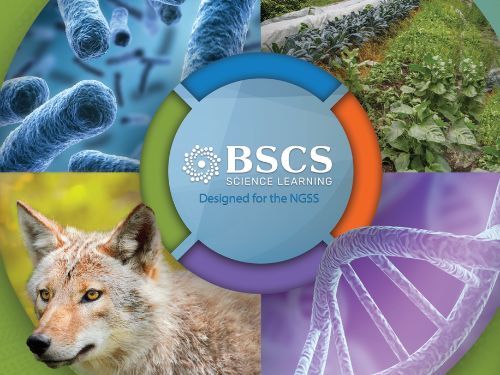Help Us Ensure All Students from All Backgrounds are Prepared for Life in the 21st Century
November 8, 2021
Over its 60+ year history, BSCS has had only a few opportunities to create a brand new high school biology program. When we learned two years ago that we were getting that opportunity again, we decided to focus on how to prepare students for life in our complex, interconnected world.
– Dr. Daniel C. Edelson, BSCS Executive Director
Dear friends,
Think back to high school biology class. Were you a dutiful student who took careful notes on your teacher’s lectures and textbook readings? Did an ability to memorize facts allow you to earn an A?
If so, you probably would have found BSCS Science Learning’s new high school biology program frustrating. At least at first. Like Sam, a student in Jim Lane’s class, did.
Jim Lane, a high school biology teacher in Minnesota, is one of the first educators to use BSCS Biology: Understanding for Life. He’s had his fair share of students, like Sam, begging for lectures and notes at the start of Unit 1—to which he responds, “Nope!”
In this unit, students learn about Zach, a healthy boy who becomes deathly ill with an antibiotic-resistant bacterial infection. At first, students only know that Zach’s medication isn’t helping. As they follow Zach’s journey, they do the work themselves to figure out why bacterial infections make us sick, and why they are becoming harder to treat.
At the beginning of the year, the only thing Sam was interested in “figuring out” was how to get an A. Sam had learned how to play the school game of listen, read, and retain. But in Jim’s class, he was being challenged to investigate. And he was being asked to share his ideas in drawings. This approach was different. And it required a different kind of work. Sam didn’t like it.
Jim admits, “It’s hard to articulate why you know something, not just what you know. But this modeling process challenges students to understand their own thinking in this way.” As Sam learned more, he was able to include more details in his drawings, and he became more comfortable with figuring things out for himself. He started to understand science, not just know science. This new approach enabled him to uncover a larger story about bacterial infections and antibiotic resistance. And ultimately, it changed how he makes sense of complex ideas.
Faith Nelson, a teacher in Illinois, has one student who is already using her deeper understanding of biology to take action in the real world. Amy recently took to a doctor’s appointment a checklist of questions about infections that she and her classmates developed as part of this unit. After the doctor ran the same immune response tests Amy learned about, they had an informed discussion about the antibiotic her doctor prescribed.
And that’s what our new biology program is about—preparing students for life in the 21st century. In their lifetimes, today’s students will face pressing societal challenges like antibiotic-resistant infections that will require them to have scientific understanding. Sadly, these societal challenges affect underserved communities disproportionately. So how do we ensure all students from all backgrounds are prepared for life in the 21st century?
At BSCS, we believe science education is the key. We have a 60-year history of research-driven innovation. And right now, we are focused on bringing our programs to districts and schools that are being left behind. Your support is critical as we strive to innovate and broaden access to outstanding science teaching and learning. Will you support this priority with a donation today?
Thank you,

Daniel C. Edelson
BSCS Executive Director
